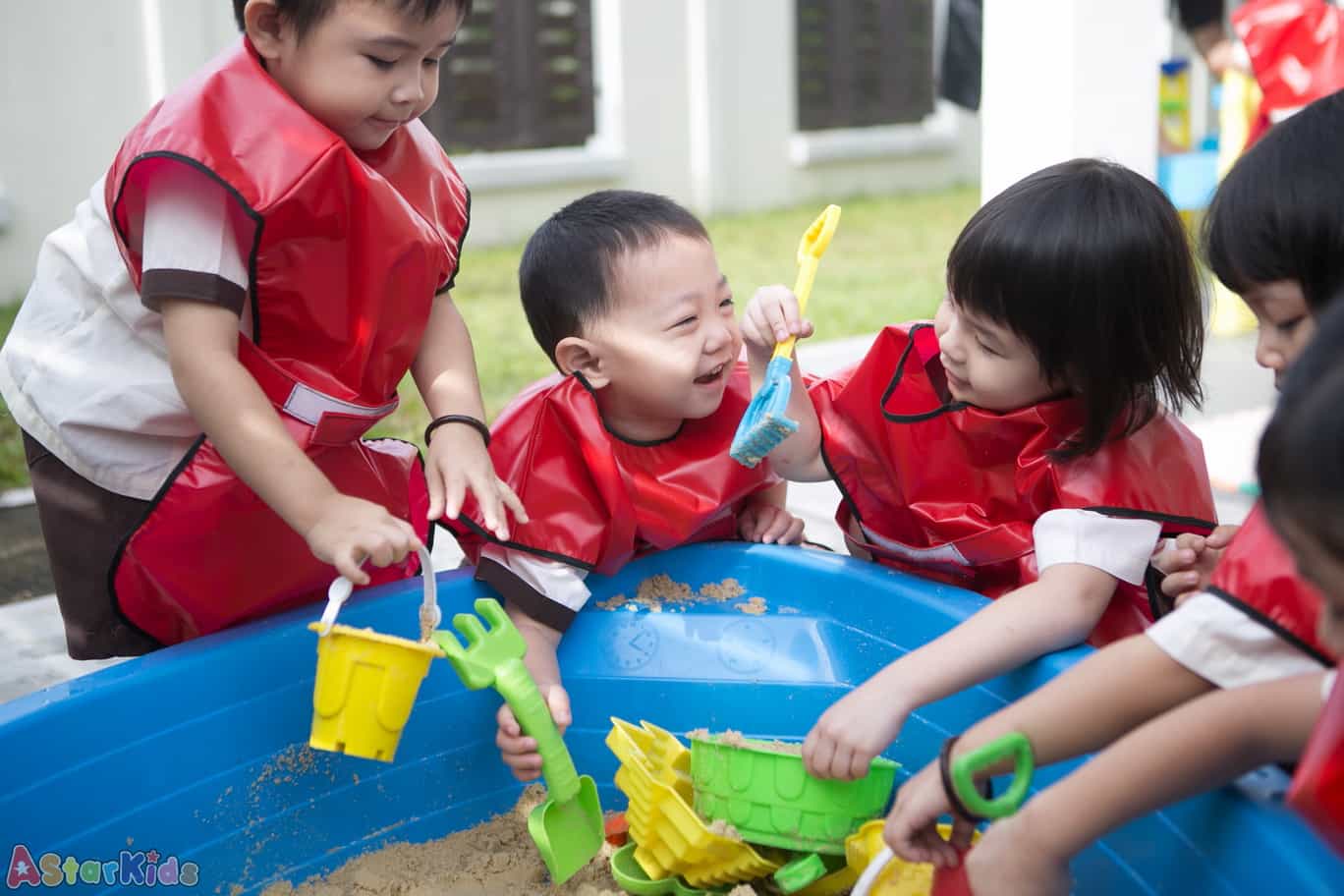Various factors like family, friends, school, extracurricular activities, cultural and religious communities have an impact on a child’s social development. To ensure that a kid acquires appropriate social skills and behaviors, a parent must take care of these different factors. Growing up in negative surroundings will have adverse effects on his/her behavior and personality.
A child’s social development in early childhood
Early childhood is the age between 2 and 7 years. It is the most crucial stage for forming various social and emotional bonds. To ensure a positive social development, it is imperative for parents or caregivers to maintain a healthy physical, social and emotional surrounding for the child. Otherwise, a child is likely to acquire a negative perspective towards life.
Maintaining positive social relationships is fundamental for the formation of an impressive personality. It is also the pathway to lead a happy life. Individuals who grow up with strong social bonds can cope up with stress and problems very well with help from other members of the society. They acquire the skill of socializing.
Numerous factors are fostering the growth of positive social behavior in a child. Maintaining these in healthy condition is a parent’s task. So, here are the 5 influencing conditions that contribute heavily towards developing a child, socially and emotionally.
Family
The most important unit for social development in children is their family. Since family members are among the first people with whom children communicate, their attitude has the greatest influence on the child’s social behavior. Growing up in large families, therefore, provides an added advantage; it imbibes acts of sharing and caring for the little ones. Having a sibling is also helpful in that case. The child, therefore, grows up to be jolly with traits like kindness, affection and compassion towards others.
For that, parents should pay careful attention in maintaining a healthy and happy ambiance inside the house as it is the founding stone for the child’s personality.
Whereas, too much of quarrels, fights and negativity are likely to create cracks in the young one’s social development and he/she might turn out to be a suspicious and pessimistic individual in future.
Note: Families that spend quality time together, for example: spending time over dinner, preparing a meal together, or going out for fishing, promote healthy socialization among children.
Friends and peer group
This is the time for your child to bond with others over playing. Of course, they do not consider friendship as an emotional or psychological support, but friendship for them is play time fun, sharing food and toys, accompanying each other through various activities. The merrier friends a child has around him/her, the better it is. In peer relation, they learn to initiate and maintain communication, manage conflicts, learn turn-taking, and role playing.
Children in preschool often form fantasy narratives together. This is very important as he/she is also building a firm relation with someone similar in age and beliefs. Engaging in team work and group projects help them improve their social development as they get a sense of security and support, outside the family.
#Negative effect:
However, rejection by peer group, peer victimization or bullying presages behavioral problems later in life. An individual is likely to develop low self-esteem and unsocial behavior.
Teachers
A child at the tender age of 3 or 4 is afraid to move out of the comfort of their parents into the unknown school campus. At school, the teacher is someone who can supplement the absence of parents. Like parents back at home, at school, the teacher sets the limits, rules and expected behavior from a child.
On successful completion of each task, the child gets appraisals and positive reviews even at school. These give him/her the confidence to explore new things, further stepping out from the comfortable vicinity of known faces and be outspoken.
Thus, a huge part of the child’s social development falls upon the teacher. It is up to the teacher to allow the child establish himself/herself as a well-mannered individual in the society. Most of the social values a person carries are learned from school, to be precise- from a teacher. A good teacher, therefore, inspires one to carry out social duties towards the community.
All of these ensure a comprehensive social development of a child.
Culture and religion
The culture or community a child grows up in determines his/her social behavior to a great extent.
For example, if a certain cultural or religious community does not encourage socialization, it will hinder a child’s social development.
That is, the child will adapt ways of separation and grow up as an isolated being. He/she will not possess skills of gelling up well with others of his/her age. The child will probably mix with people from his/her community; which will fail to bring about diverse traits in their personality.
Whereas, a child growing up in a mixed culture or a liberal one will have different opinions and viewpoints. He will be more open to socializing and accepting different kinds of people. This will keep adding to their personality, creating an impressive one when he/she becomes a grown up.
Extra curricular activities
Extracurricular activities include dancing, singing, playing instruments, sports, art and craft and such others. Because all work and no play makes Jack dull, in recent times, these have been made a compulsory part of every school’s curriculum.
As children together take part in such activities, they learn the importance of teamwork and performing in groups. You will soon notice your child taking responsibility for others, crafting unique ideas to overcome difficulties, showing interest in organizing skills. All these forms an integral part of social development.
Through extracurricular activities, they learn the importance of acknowledging and praising others for their brilliance. This later helps them become appreciative of other people. Otherwise, children seem to turn envious and jealous.
Social development – coming to a conclusion
Human beings are part and parcel of a society, so, nobody can live outside it. Living in isolation can bring neither peace nor happiness. Thus, acquiring appropriate social behavior from a very young age is important to integrate into the society he or she lives in. However, the kid also has to learn the art of retaining their individuality while developing social skills.
Living within the vicinity of a healthy family, friend circle, teachers and culture nurture the process of kid’s social development.
Related articles include: cognitive development – physical development – fine motor skills – gross motor skills – emotional development – language development


